Master Intro 2018| Surprising ideas give confidence in the future
At the Master Intro on Thursday, students work together in multidisciplinary teams on a challenge at one of the TU/e's three Strategic Areas: Health, Energy or Smart Mobility. Examples of the challenges are solving the global food shortage and increasing confidence in self-driving cars. For the winners there is a high performance training that helps to get the best out of their education and career. One of the lucky concepts? A floating farm.
The Thursday challenge takes place at the TU/e innovation Space. "This space is aimed at encouraging students to think about how their research can contribute to answering social questions. We want to make the connection between the university, the applicability of research and the society", says innovation Space ambassador Christiaan Teeuwen enthusiastically. Professors, professionals and others who deal with the problems on a daily basis guide the students.
Challenges
In each of three areas two social challenges are presented, after which each group can then choose for themselves which challenge they will work on. In total there are six challenges to choose from: Energy Transition, Energy Footprint, Smart City, Smart Mobility, Food Cycle and Lifestyle Technologies.
Student Applied Physics, Jan van Mastrigt, explains how his group 94 has focused on the Smart Mobility challenge: "We want to create trust among other road users in the self-driving cars. After all, you can no longer make eye contact with the driver if the cars will be developed so far in the future that no one needs to be behind the steering wheel anymore. That is why we have created LEDs that turn green, orange and red. They also count down and show you as a pedestrian or cyclist as an icon on the car, so you know you are seen."
Jury
The jury consists of two people from TU/e Innovation Space, two people who are involved in the TU/e Strategic Areas and two people from business. Each group can pitch the idea to the jury in about one and a half minutes. After that, a few questions are asked.
Student Embedded Systems, Aishwarya Raamkumar, says that working on the challenges is a fun experience: "There are students from many different countries and the teams are very diverse. Unfortunately my team was a bit small, but we had a lot of interaction with other teams around us."
Cursor spoke to one of the winning groups, group 106 that worked on the Food Cycle challenge. Jing-Cai Liu, Industrial Design student: "We have come up with a floating farm with which we save land. The farm is located in the sea and consists of several layers. Under the surface, the water is purified so that it can be used to grow the food. The farm also spins around, so regulary a different part connects to land and can be harvested."
Award ceremony
Until the winners were announced, the students were entertained by the Tunas and there was an opportunity for a snack and a drink at the food trucks. The atmosphere was good but the lines were also very long, which created another 'challenge': how do you get the hungry students to the Markthal for the ceremony if they are still waiting for their dinner? Slowly but surely the first students came in and the ceremony could start.
The winners were announced by rector Frank Baaijens. He emphasized how important it is that we work together in multidisciplinary teams to provide solutions for these societal challenges. Unfortunately, the winning concepts are not available online. If the students are motivated to further develop their idea, they will be given the opportunity and coaching at the innovation Space.
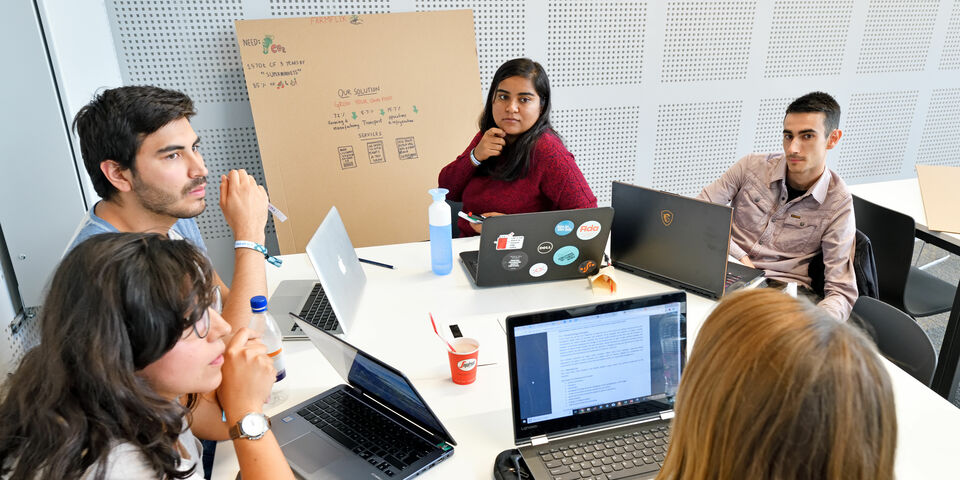

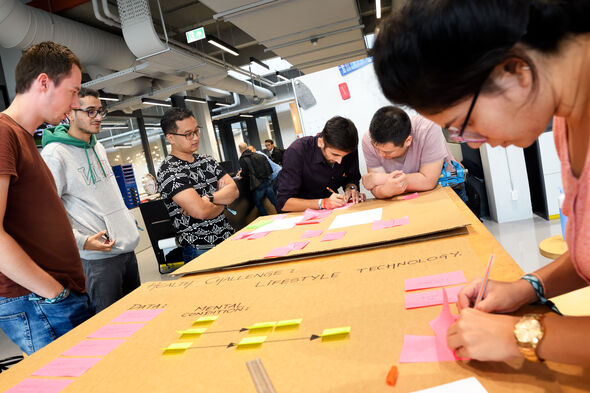
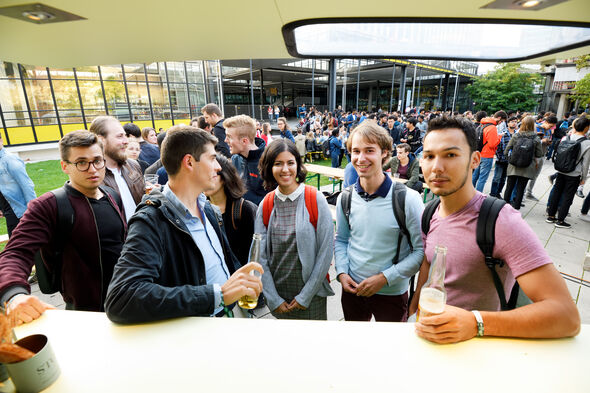
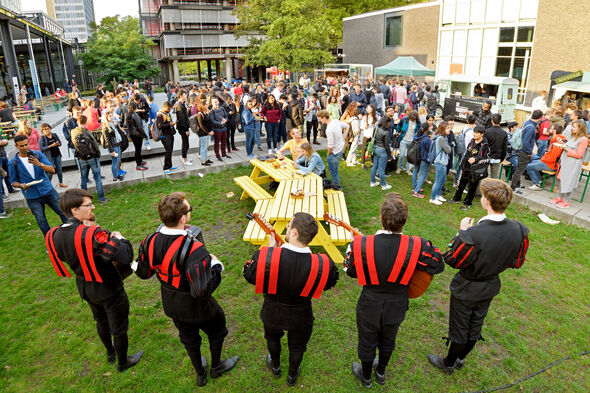
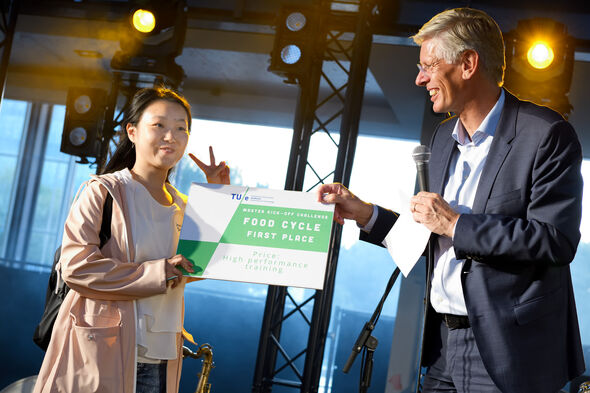
Discussion